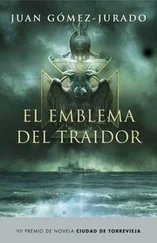“Eight hours, is it?”
“And the salaries too.”
“How much are they asking for?”
“Well… three soles a day, sir.”
“You mean that’s what they earn now?”
This time her laugh is genuine.
“Oh, of course not! That’s what they’d like, sir. They get just under two at the moment.”
“Two soles !” Carlos repeats, his eyes widening.
“Two soles , yes. And a piece of bread costs less than half a sol . Of course some people are never happy with anything.”
Carlos closes the newspaper. He ponders a moment.
“How much do we pay you?”
“Me, sir? Well… the usual. Room and board, and half a sol a day. What more could a person want?”
Carlos doesn’t answer immediately.
“Nothing, of course. You may go now.”
But the maid doesn’t move.
“I just… I just want to assure you that you don’t have to worry about me, sir. I know what’s fair.”
“Of course you do.”
“I’m not like my brother. I’m happy with what I have and I don’t cause any trouble. I’m not a revolutionary.”
“No, you’re not a revolutionary.”
And then he thanks her.
◊
The negotiations have begun, says the front page of El Comercio , the financial paper, and they go down to the port, hopeful at the news. What they do not know is that the conversations between the chamber of commerce and the strikers have failed; they had already failed, in fact, when the newspaper ink was still drying on the page. And so when they arrive they find the docks teeming with workers trying to prevent the scabs from the Britain Steamship Company from working. Tomorrow El Comercio will say that there were no more than two hundred people; the statement issued by the strikers’ commission will claim fifteen thousand. To José and Carlos, these numbers are unimportant. In any event, there are enough people to fill the port and even to block Calle de Manco Cápac, so it takes them a long time to push their way through the crowd to the edge of the dock.
In the distance they can make out the ships’ rigging, the steamships covered with patches of barnacles and rust. On one of them, who knows which, are the chapters that have not left; on another, the chapters that have not arrived. José and Carlos sit on the breakwater beside the esplanade and contemplate the ships, impotent. Last night, they heard that the Compañía Sud Americana de Vapores and the Britain Steamship Company had offered their regular crews two and a half soles to load the cargo, but the strikers’ union headed them off with a better offer, and now the city’s taverns are full of Russian and German and Turkish sailors who drink until they pass out at the workers’ expense. And so the decks are empty — there is no one aboard any of them save a handful of officers shouting at one another. Them and the rat that travels with the transatlantic mail, of course, which is startled to discover that, for the first time, the boat it calls the universe has stopped rocking and creaking to the rhythm of the waves. For the rat, at least, the strike has brought the whole world to a halt.
José flings pebbles from the breakwater into the sea. Between each one, he pauses to grumble a moment. It’s vile, an embarrassment, that a few good-for-nothings can bring an entire city to its knees and then stick around shouting and jeering. Carlos has the sensation that he is listening to his father’s voice, grown suddenly youthful but just as harsh. José also talks about Juan Ramón: “Do you know what happens when an installment of a serial novel is delayed?” he asks. Carlos does not. “Well, I’ll tell you: For the first few days the readers are restless, more curious, eager to keep reading, but as time passes they end up forgetting about it and start reading something else. That’s what’s going to happen if the letters don’t get out soon,” he continues. “The Maestro will start a new novel and won’t be interested in the old one. That’s what’s going to happen, Carlota.”
Carlos nods mechanically. For the first time he not only remembers Georgina but also contemplates, with curiosity and some surprise, the workers themselves. From the breakwater they seem to form a single body, as if they were a monstrous living thing spilling down the docks and wharves, its skin scaly with hats and faces. From time to time they shout a few slogans, and their roars, too, seem to braid together into a single voice. If José and Carlos had seen one of those lowly men from up in the garret, they would have taken him for a secondary character, but it occurs to Carlos now that as a group, they might somehow constitute a protagonist.
José hurls another stone and, with it, another complaint.
“That bastard Sandoval sank us. If his goal was to ruin our novel, he certainly succeeded.”
Carlos shakes his head, still watching the swarm of men.
“I don’t think Sandoval cares all that much about us, to be honest.”
“He does, I’m telling you, he does. I know that imbecile… He was dying with envy over the Georgina business. He wouldn’t care so much about these fools otherwise.”
Carlos hesitates a moment, seems about to speak, but then says nothing. José turns abruptly to look at him.
“What?”
“What do you mean, what?”
“Don’t play dumb, Carlotita, I know you. At this point I know everything there is to know about your silences. What are you thinking?”
“Nothing… just something I heard this morning.”
“Let’s hear it.”
“Do you realize they earn only two soles ?”
“Who?”
“The dockworkers.”
“Okay.”
Carlos waits a few moments. Then he adds:
“Two soles a day, I mean. Not per hour.”
“And do you think that’s a little or a lot?”
“Are you joking? It takes more than a week’s wages to buy a book, for the love of God!”
José shrugs.
“I very much doubt any of them know how to read. So no books; that’s one less expense. Also, their income can’t be that low if they’re able to take this vacation right now. The bastards.”
Carlos is silent, shuffling through a number of possible responses. Finally he says:
“You’re right.”
But he can’t get it out of his head. The two soles , just a couple of coins, grow in his mind until they fill it completely. Before him he sees the strikers, their shouts becoming louder, the animal bucking and stomping, trying with its immense body to overrun the railroad track connecting the port with the customs office. A group of soldiers, absurdly tiny, braced to stop it. Carlos feels something like admiration, not for their poverty but for the energy with which they are fighting to escape it.
He wonders what Georgina would think of them. Indeed, he wonders it aloud.
“I wonder what Georgina would think.”
“About what?”
“About all this. The strike at the docks.”
“I daresay she’d be furious at being unable to communicate with Juan Ramón.”
“Yes, but I mean their ideas. What would she think of the workers, their demands, the two soles …?”
José makes a gesture that might mean anything. But actually it means something quite specific: What do I care?
“I think she’d sympathize with them,” Carlos adds when it’s clear that José is not going to answer.
“Maybe,” he replies at last. “You know, that wouldn’t be a bad idea for a chapter. Georgina among the workers… Consoling them with her presence…” He raises his arm and points into the crowd. Slowly he lets his arm fall. “But what use would that chapter be when we can’t even send it to Juan Ramón?”
Читать дальше












